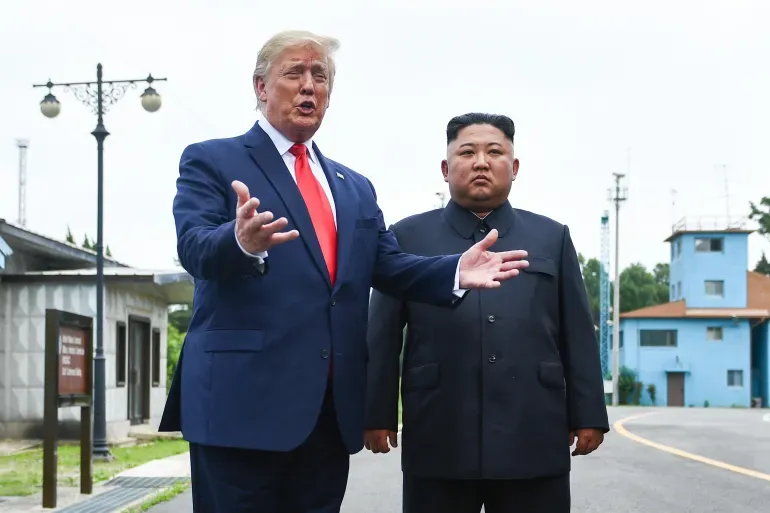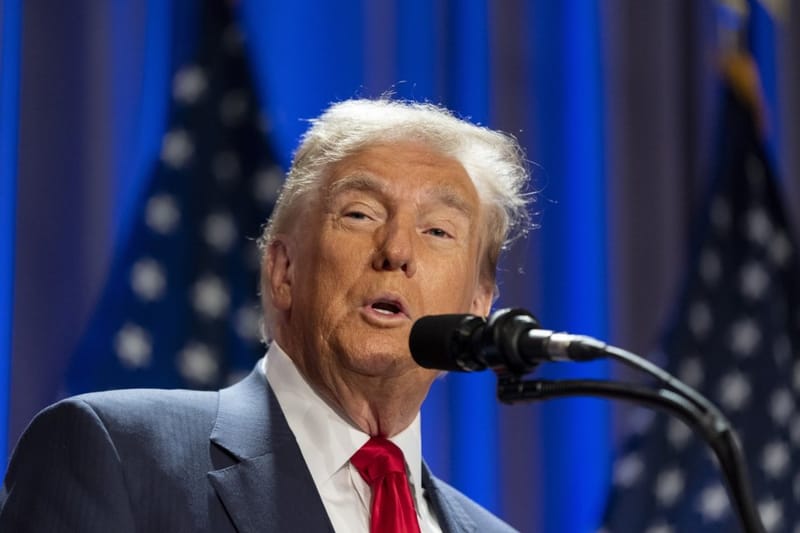Asia braces for disruption to alliances, trade after Trump’s victory
Following decisive election win, Trump is expected to pursue more aggressive version of his ‘America first’ policy.

As Donald Trump returns for a second term as U.S. president, Asia is preparing for potential shifts in regional dynamics that could impact trade and longstanding alliances with the United States.
During his initial term from 2016 to 2020, Trump, who claimed victory over Kamala Harris in the recent election, disrupted traditional U.S. foreign policy norms. Notably, he began a trade war with China in 2018 and engaged directly with isolated leaders such as North Korea’s Kim Jong Un and Taiwan’s then-President Tsai Ing-wen. Trump’s plans for his second term include a heightened “America First” approach, focusing on protectionist trade measures, including tariffs not seen since the Great Depression.
"A second Trump term would expand the focus of tariffs globally," noted Steve Okun, CEO of APAC Advisors. India’s Prime Minister Narendra Modi, among the first to congratulate Trump, expressed optimism for "renewing our collaboration." Meanwhile, China has expressed hopes for “peaceful coexistence” in U.S.-China relations, but tensions may escalate if Trump imposes a 60 percent tariff on Chinese goods.
Economist Nick Marro of the Economist Intelligence Unit predicts that intensified U.S.-China trade tensions will affect supply chains across Asia. Many economies in the region are deeply reliant on trade; Southeast Asia, for instance, has a trade-to-GDP ratio twice the global average. Trump’s proposal of a blanket 10-20 percent tariff on all foreign goods could affect major trade-oriented economies, including allies such as South Korea, Japan, and Taiwan. An Oxford Economics report suggests that these tariffs could lead to a notable decrease in exports and GDP in several Asian countries.
Some regional leaders are concerned that Trump's approach may strain traditional alliances. South Korea’s media commented that the country may need to minimize “Trump risk” by pursuing a more pragmatic foreign policy that prioritizes national interests. Trump’s hesitance to uphold military commitments to allies, including Taiwan, has been closely watched. While the U.S. lacks formal diplomatic ties with Taiwan, Washington remains Taiwan’s primary security supporter under the 1979 Taiwan Relations Act. However, Trump has criticized Taiwan over chip manufacturing dominance and discussed tariffs against China should Beijing attempt to take Taiwan by force.
In Taiwan, experts like Yang Kuang-shun, co-founder of U.S. Taiwan Watch, recommend that Taiwan demonstrate its commitment to defense spending and partnership with the U.S. Japan and South Korea, which depend on U.S. military support, may also need to reaffirm their strategic value to the U.S. under Trump’s renewed leadership, according to Isaac Stone-Fish, CEO of Strategy Risks.
Critics of Trump’s “America First” strategy suggest that his approach could open diplomatic space for China, as seen when Beijing advanced the Regional Comprehensive Economic Partnership following the U.S. exit from the Transpacific Partnership. Additionally, China gained several of Taiwan's diplomatic allies during Trump’s first term, a trend that continued under the Biden administration.
Despite his isolationist stance, Trump has shown a unique approach to diplomacy, such as his meetings with North Korea’s Kim Jong Un. In 2018, Trump became the first sitting U.S. president to meet with a North Korean leader, and their relationship continued with more summits. Trump even reportedly sent Kim COVID-19 tests at the start of the pandemic, highlighting his untraditional diplomatic style.
As Trump resumes his presidency, his approach to U.S.-Asia relations remains complex and unpredictable, with the potential for significant impact across trade, alliances, and regional stability.





